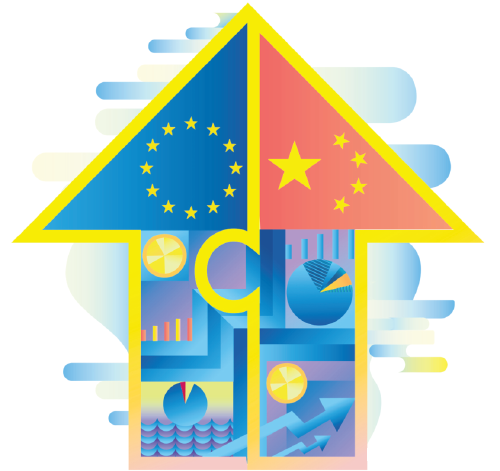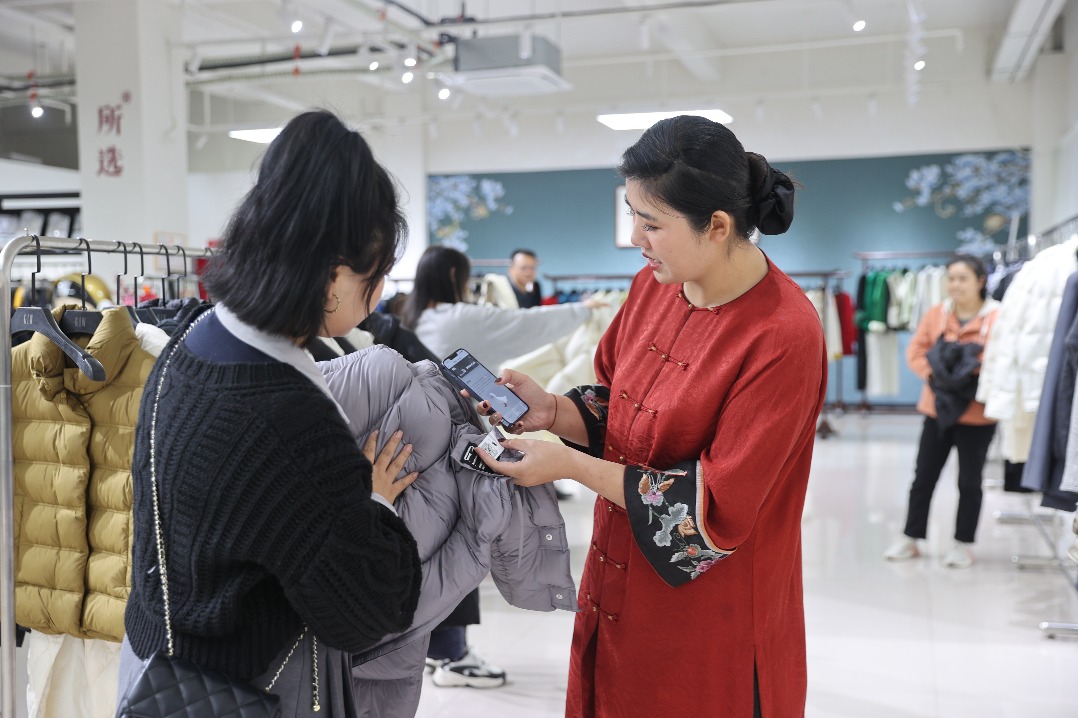Minister of Chinese Mission to EU underlines interdependence between EU companies and China's industrial chain, market
chinadaily.com.cn | Updated: 2020-11-29 10:38

It is not in the interests of either China or the EU to split up European businesses from China's industrial chain and market, according to Xia Xiang, minister of the economic and commercial office of the People's Republic of China to the EU.
In an article published on Nov 26 on EUobserver, an online European newspaper, Xia shared his thoughts on those voices which are calling for the re-shoring or near-shoring of the supply and industrial chains of Europe's critical sectors - including medicine and pharmaceuticals - to reduce dependence on China's supply chains and market in response to the difficulties in sourcing raw materials from China which have been caused by COVID-19.
He said that the current global industrial layout is a manifestation of the objective laws governing economic operations, and that the industrial landscapes of China and the EU are primarily a result of the optimal allocation of global resources, based on market rules.
China has abundant and high-quality human resources, well-developed infrastructure and supporting industries, and a huge market with robust demand.
Meanwhile, the Chinese government continues to step up efforts in economic reform and opening-up, and keeps improving its business environment, he said in the article, outlining China's various advantages that have made it an attractive place for European companies to invest and build their industrial chains.
To rashly move industrial chains away from China in disrespect of economic laws will substantially increase production costs and weaken the global competitiveness of European companies, ultimately hurting Europe's own interests, he added.
He also pointed out China's dependence on EU supply chains in many sectors, and said that he would prefer to use the word "interdependence" when speaking of the relationship between China and the EU.
The relationship between China and the EU is in fact characterised by positive interdependence, with highly intertwined interests, he said.
For example, in producing the ventilators used for COVID-19 patients, China imported a large proportion of the core components from Europe.
And in 2019, the EU accounted for more than half of China's imports of vehicles and auto parts plus aircraft and their accessories, according to Eurostat.
Therefore, it is neither factual nor helpful to overemphasize the EU's dependence on China while overlooking the positive interdependence between the two sides, he noted.
Xia also stressed in his article that China's industrial chains and markets have created huge benefits and new sources of growth for European companies.
For example, it is with the help of Chinese equipment and raw materials that German face mask manufacturers have substantially increased their production capacity at lower costs, contributing to Europe's response to the COVID-19 outbreak.
And the automotive industry, a core industry in Europe, has made enormous profits and gained amazing opportunities in the Chinese market.
Statistics show that in 2019, 28.6 percent of the new BMW cars were sold in the Chinese market, which was the largest market for the company for the eighth consecutive year.
As the European auto industry is hit hard by COVID-19, the Chinese market offers a bright spot, he added.
"As some European companies rightly suggest, it is unwise to move away from China's industrial chains and markets," Xia wrote.























